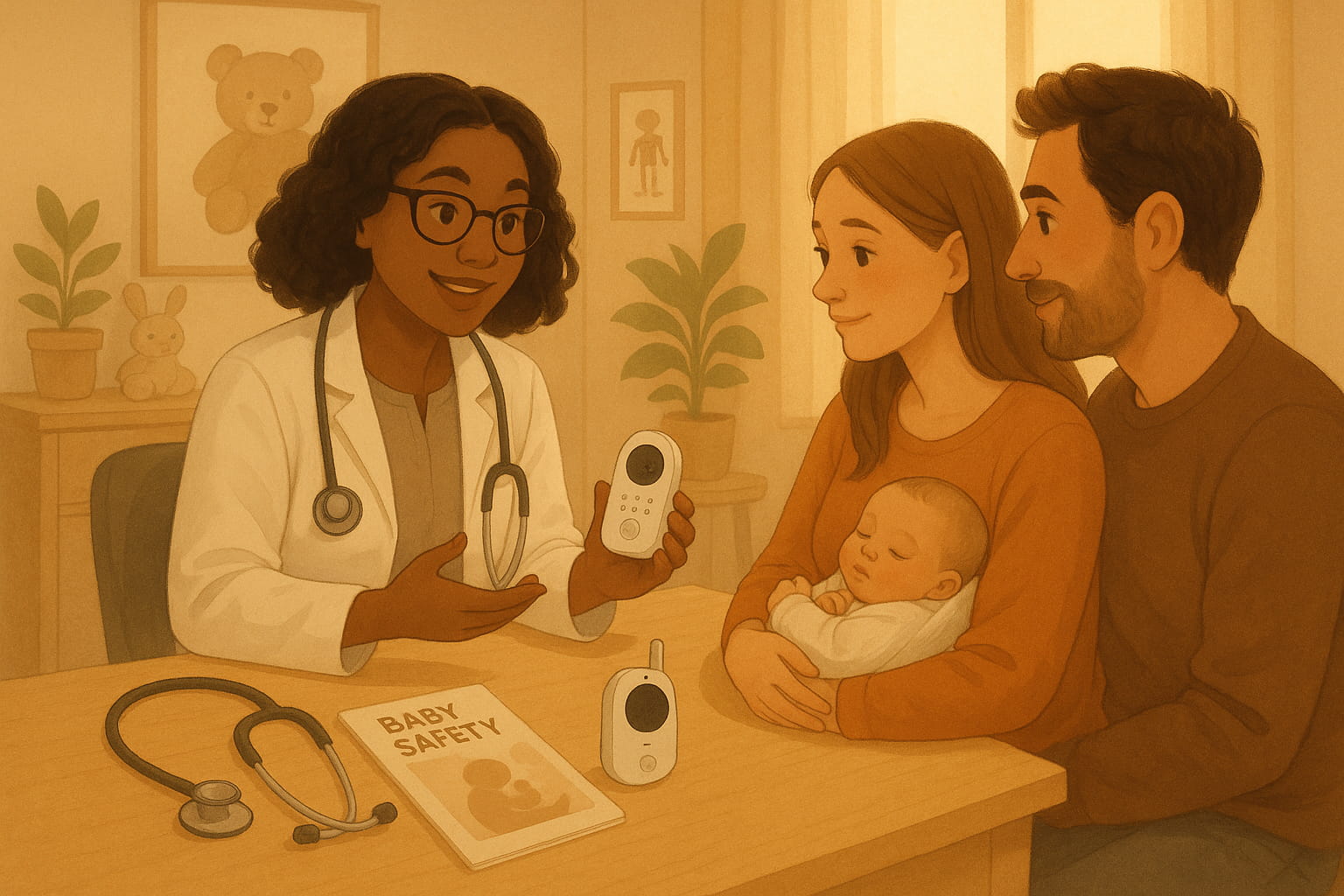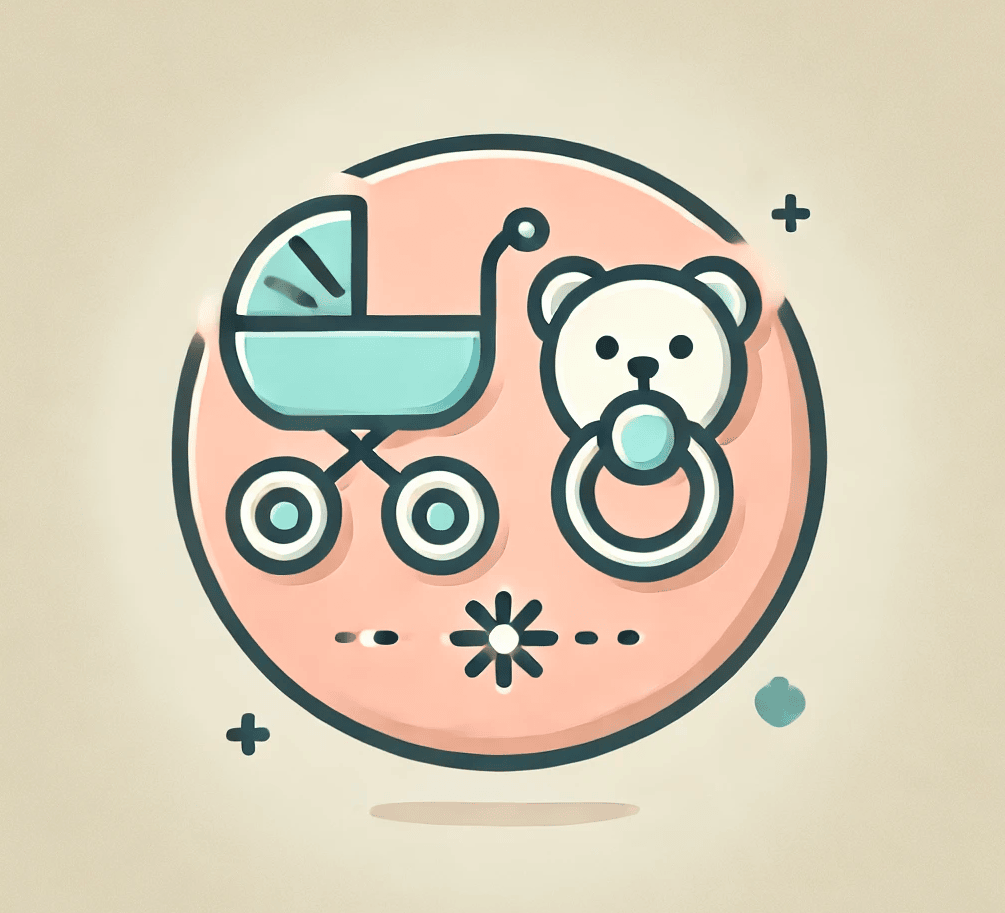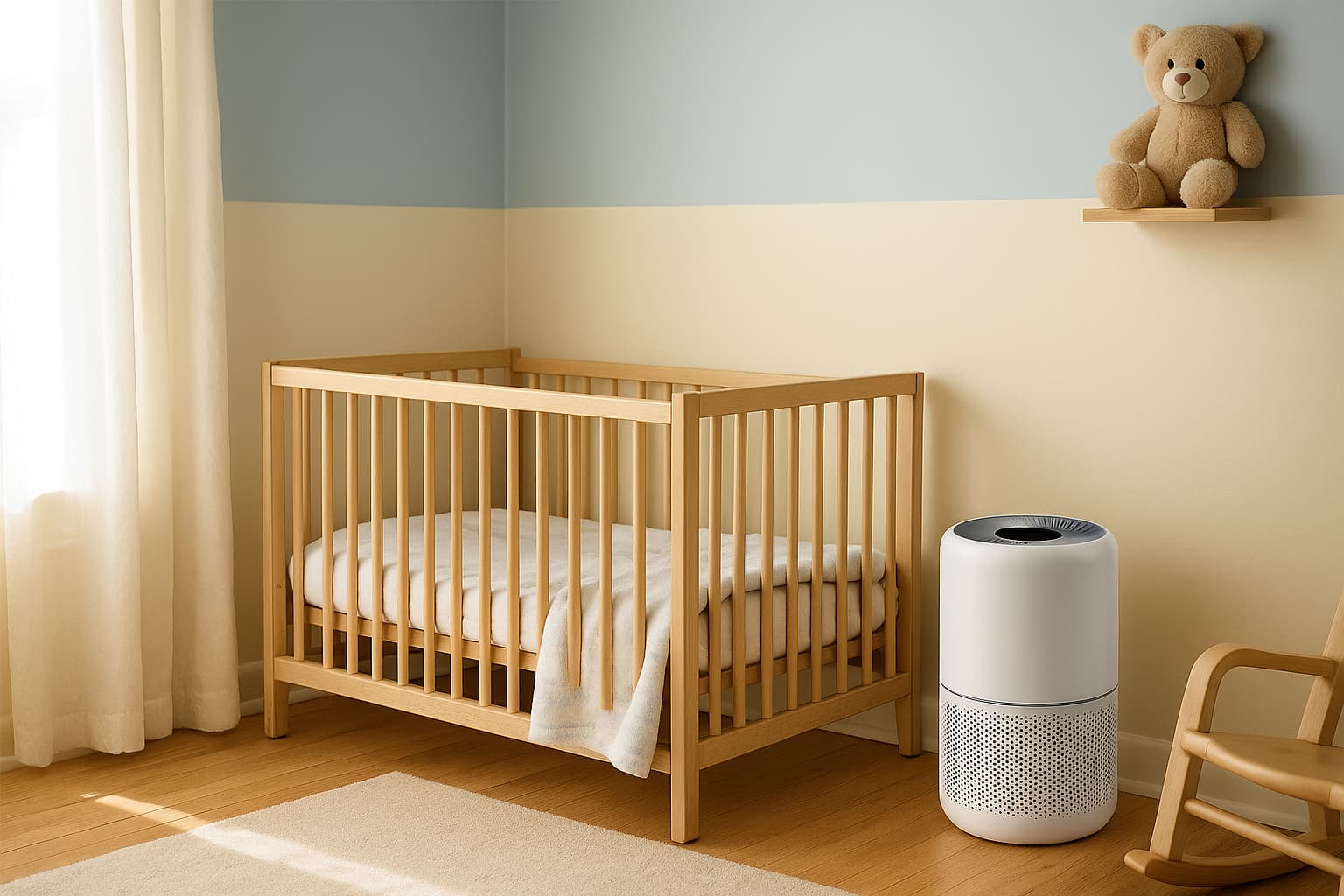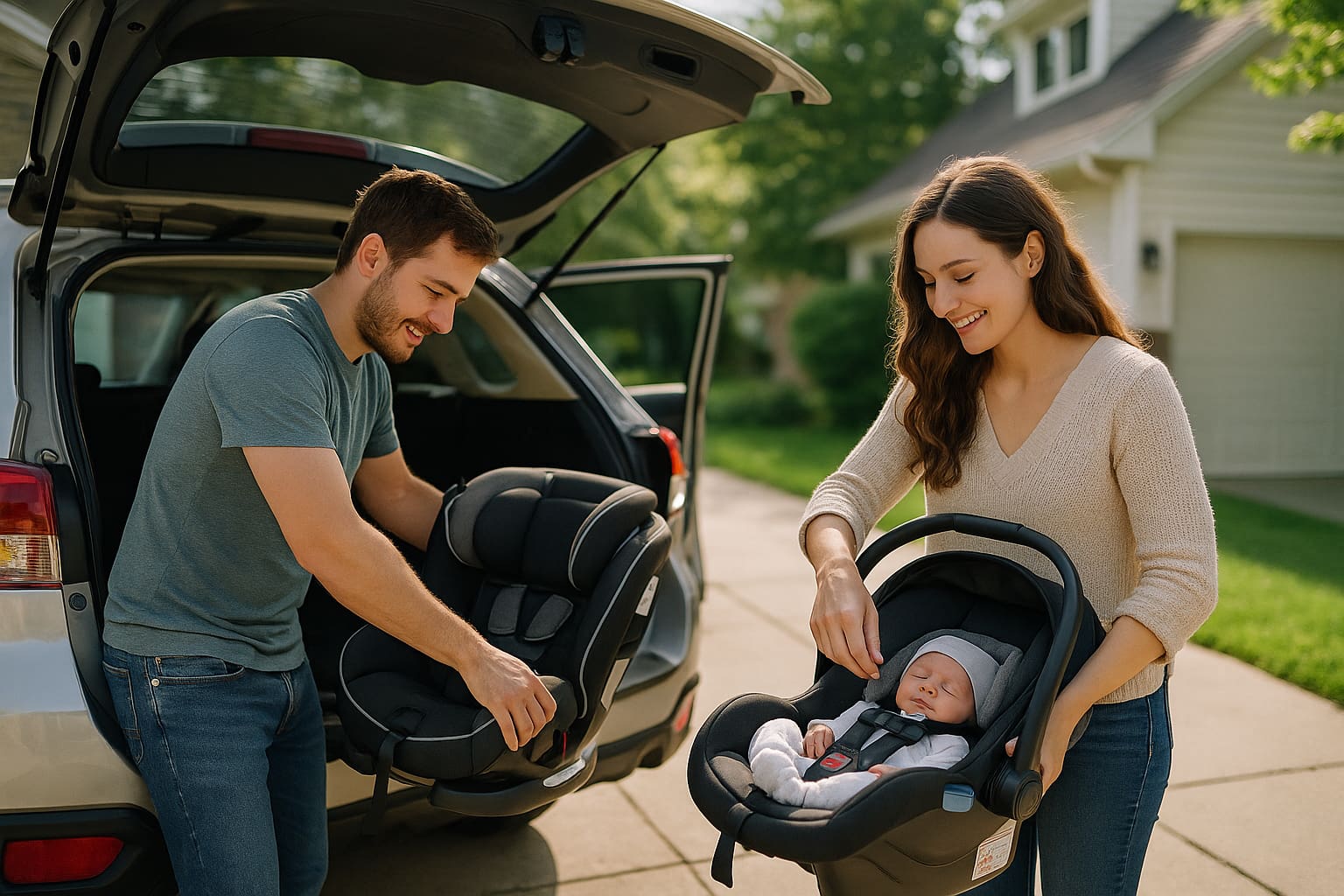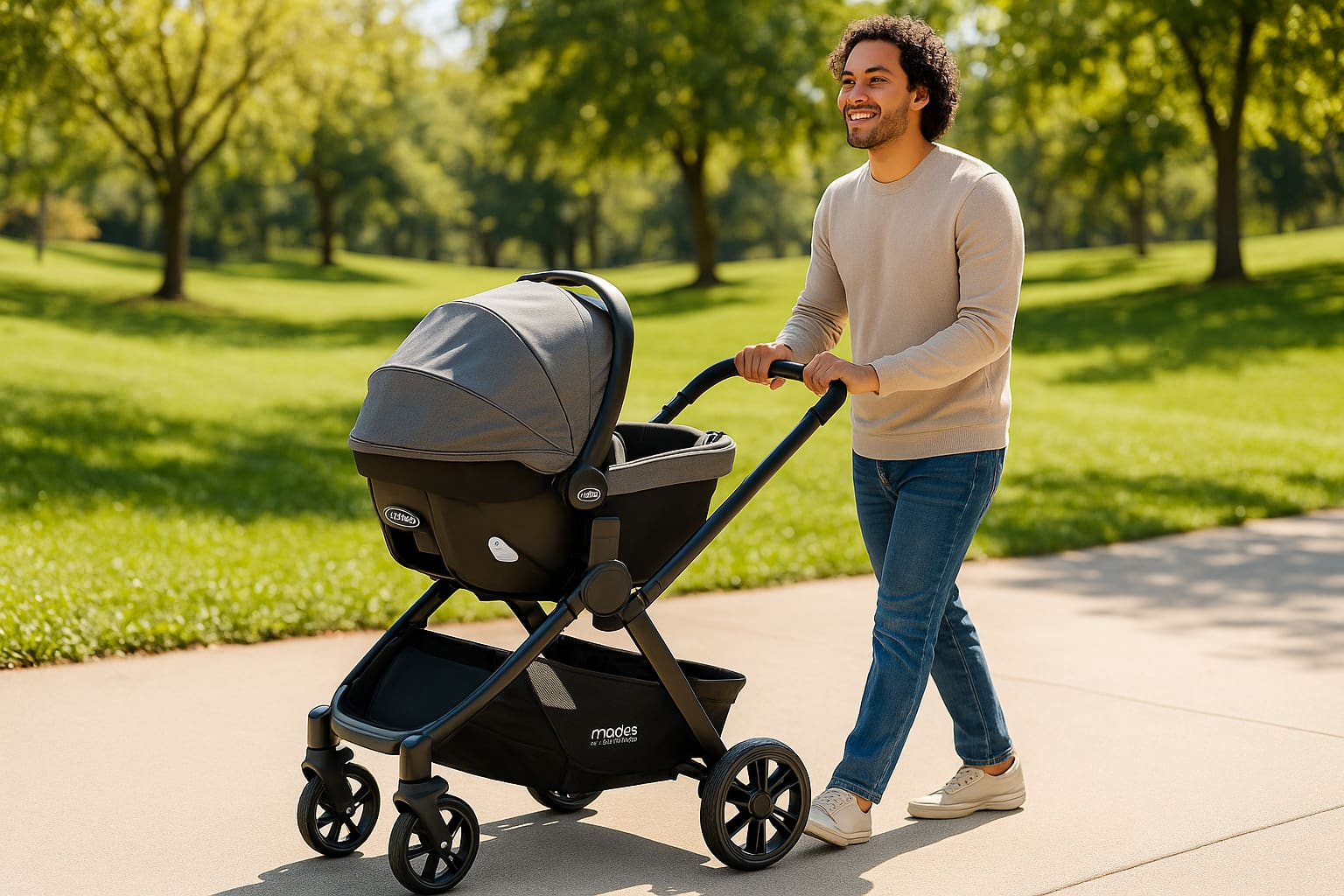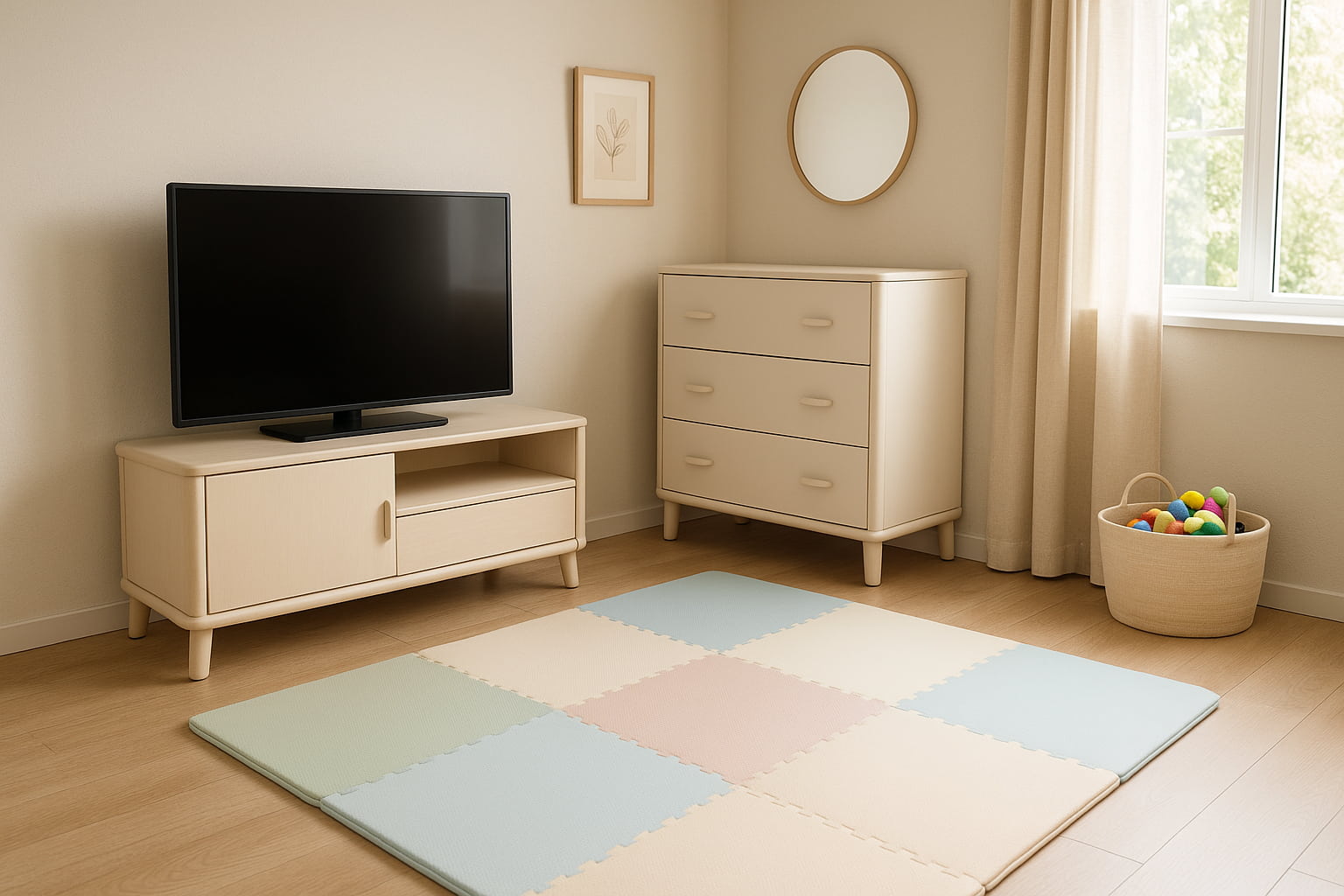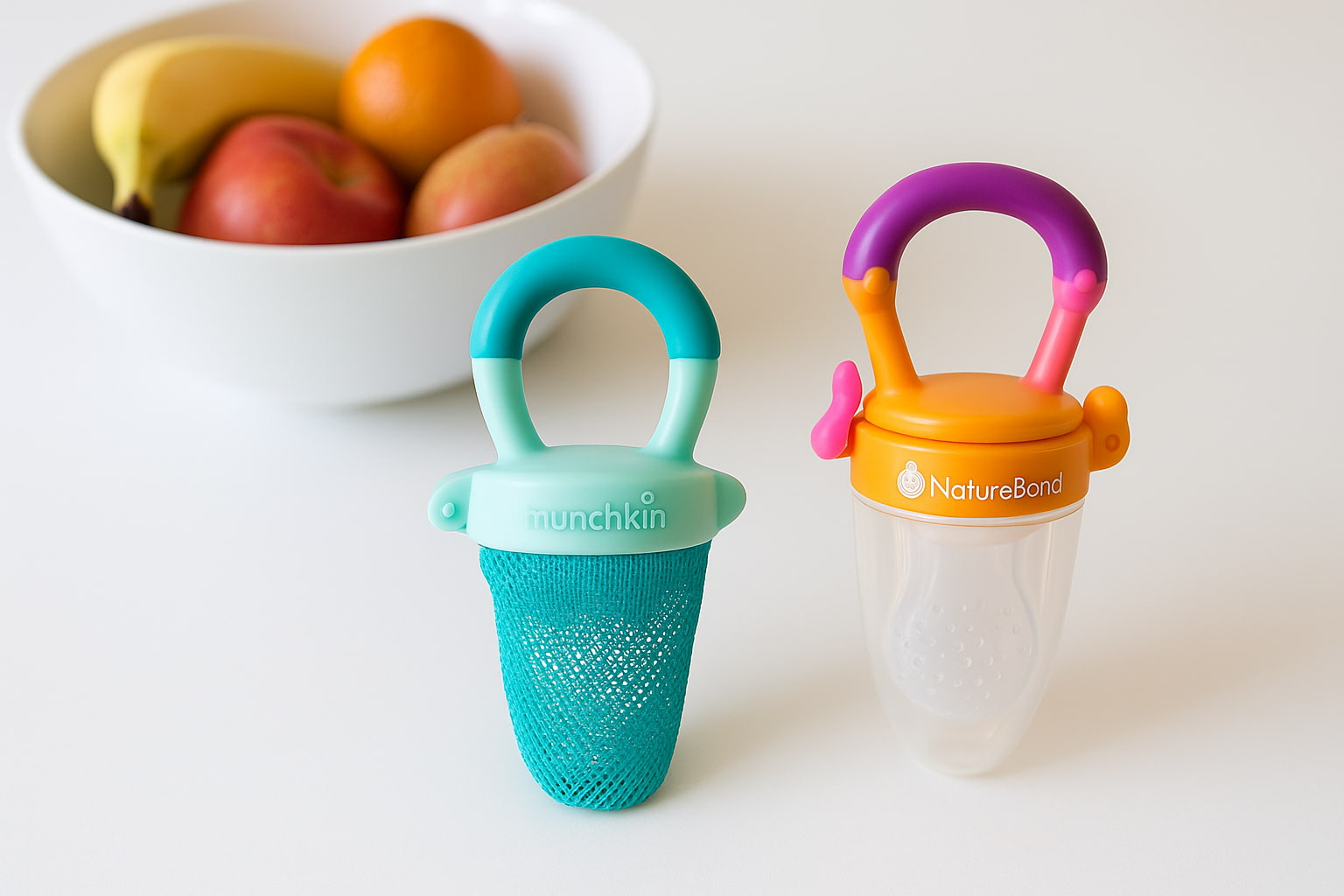Picking the right baby monitor is a big decision for many parents. It’s not just about checking the screen, it’s about feeling safe, calm, and in control.
But many parents ask the same question:
“What do pediatricians really think about baby monitors?” This is where pediatrician advice on baby monitor use becomes important.
Some doctors support using monitors for peace of mind. Others worry that parents may rely too much on them and miss what really matters: safe sleep and hands-on care.
That’s why it’s important to understand both sides. In this article, we’ll share advice from real pediatricians. You’ll learn when monitors are helpful, when they might not be, and how to use them the right way.
No fear. No pressure. Just clear answers from people who care about your baby’s health.
Let’s break it all down together so you can feel confident and informed as you make the best choice for your family.
🩺 Pediatricians Support Monitors for Peace of Mind
If you’re a new parent, you’re not alone in feeling nervous at night.
Pediatricians understand this. That’s why many support the use of monitors for reassurance, especially in the early months.
✅ Monitors help ease nighttime anxiety
✅ They offer visual and audio check-ins without disturbing your baby
✅ Some smart monitors can even support healthy sleep tracking
But remember, they’re a tool, not a necessity. Monitors aren’t a medical requirement for every family. They are simply ways to better nighttime sleep for many people.
👉 Want to compare smart vs traditional options? Our guide on Smart Monitors vs Traditional Monitors helps break it down.
💡 When Do Pediatricians Recommend Baby Monitors?
Pediatricians often recommend monitors in specific cases, not for every baby.
Common situations include:
🔹 Premature infants
🔹 Babies with reflux or breathing concerns
🔹 Families with prior SIDS anxiety
🔹 First-time parents needing peace of mind
In these cases, a monitor may help detect unusual patterns like irregular breathing or excessive stillness during sleep.
Still, they caution that no monitor replaces active parenting and pediatric checkups. For healthy, full-term babies, a simple audio or video monitor often works just fine.
👀 Need expert picks for breathing monitors? See our list of 4 Trusted Baby Monitors with Breathing Monitor Picks.
🛑 What Pediatricians Warn Against With Baby Monitors
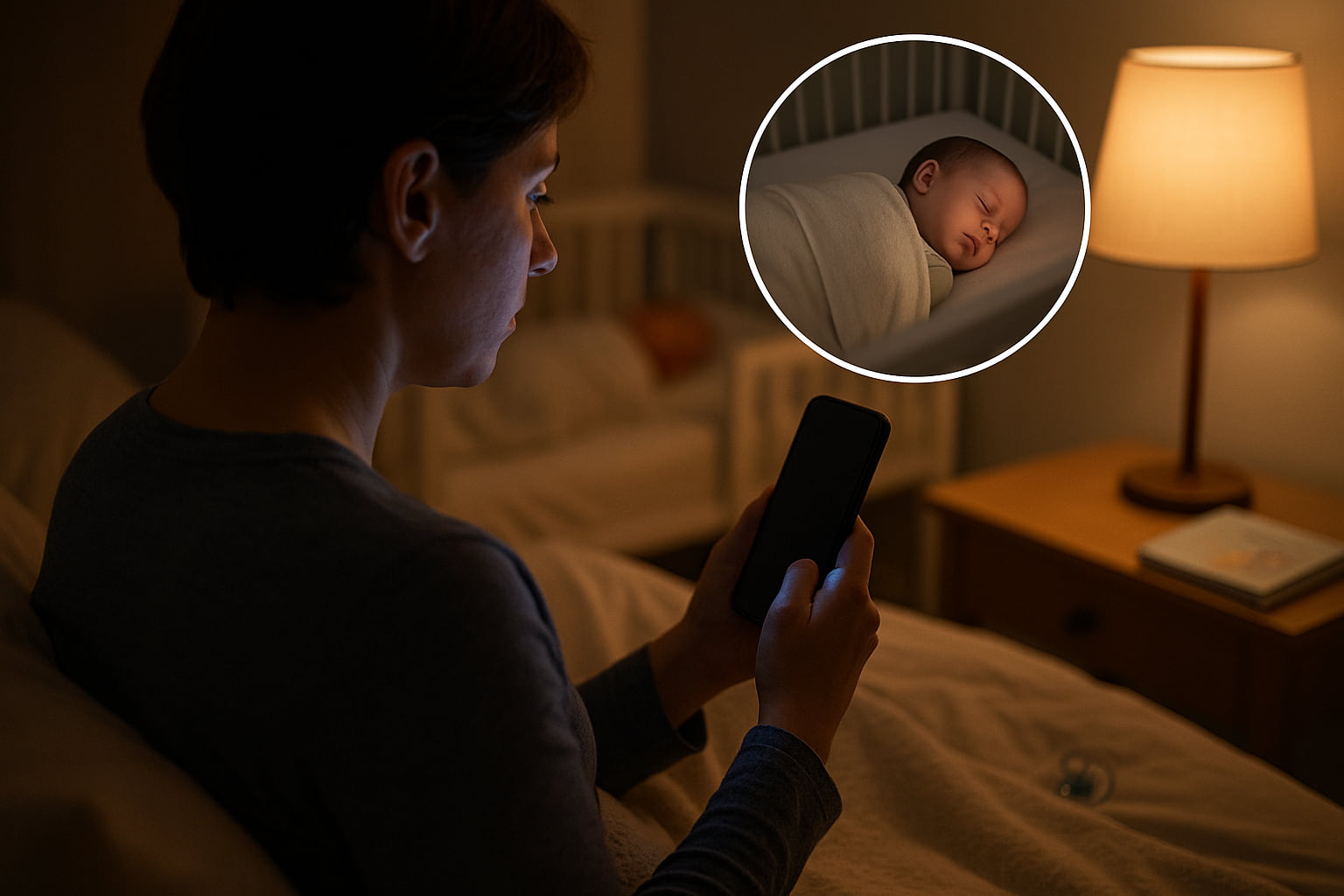
Pediatricians don’t just talk about benefits; they highlight the downsides too.
Here’s what many warn parents about:
⚠️ Relying too much on monitors instead of checking the baby physically
⚠️ Panic from false alarms (especially with smart monitors)
⚠️ Assuming monitors prevent SIDS (they don’t)
They stress the importance of combining safe sleep habits with smart tech, not using one to replace the other.
Remember: a monitor is only one layer of safety, not the whole system.
💤 Are Monitors a Must for Healthy, Full-Term Babies?
The short answer? Not always.
Most pediatricians say that healthy, full-term babies don’t need constant monitoring. Instead, they suggest:
🔹 Using a simple monitor only if it eases anxiety
🔹 Practicing safe sleep habits first (on back, firm mattress, no soft toys)
🔹 Monitoring room temperature and overall sleep conditions
Pediatricians call this the “watchful but not worried” approach, where you use tech smartly without letting it take over your instincts.
🔊 Audio, Video, or Smart? Pediatrician Preferences Explained
Which type of monitor do pediatricians prefer?
🎧 Audio monitors: Simple, reliable, and no apps needed
📹 Video monitors: Good for visual reassurance, especially during sleep transitions
📲 Smart monitors: Useful in special situations but come with trade-offs (like subscriptions and learning curves)
Many pediatricians favor non-WiFi monitors or local-video monitors to reduce screen time and digital clutter.
👉 Want to see key safety tips? Try our Baby Monitor Safety Checklist for New Parents.
⚠️ Pediatricians & SIDS: What the Science Actually Says
One of the biggest myths? Baby monitors prevent SIDS.
The AAP is clear: No monitor prevents Sudden Infant Death Syndrome.
Instead, pediatricians recommend:
✔ Placing the baby on their back for all naps
✔ Keeping the sleep area free of soft items
✔ Avoiding overheating during sleep
Monitors can’t replace these precautions, but they can help you feel more confident when following them.
📡 Pediatrician Advice on When to Start Using a Baby Monitor
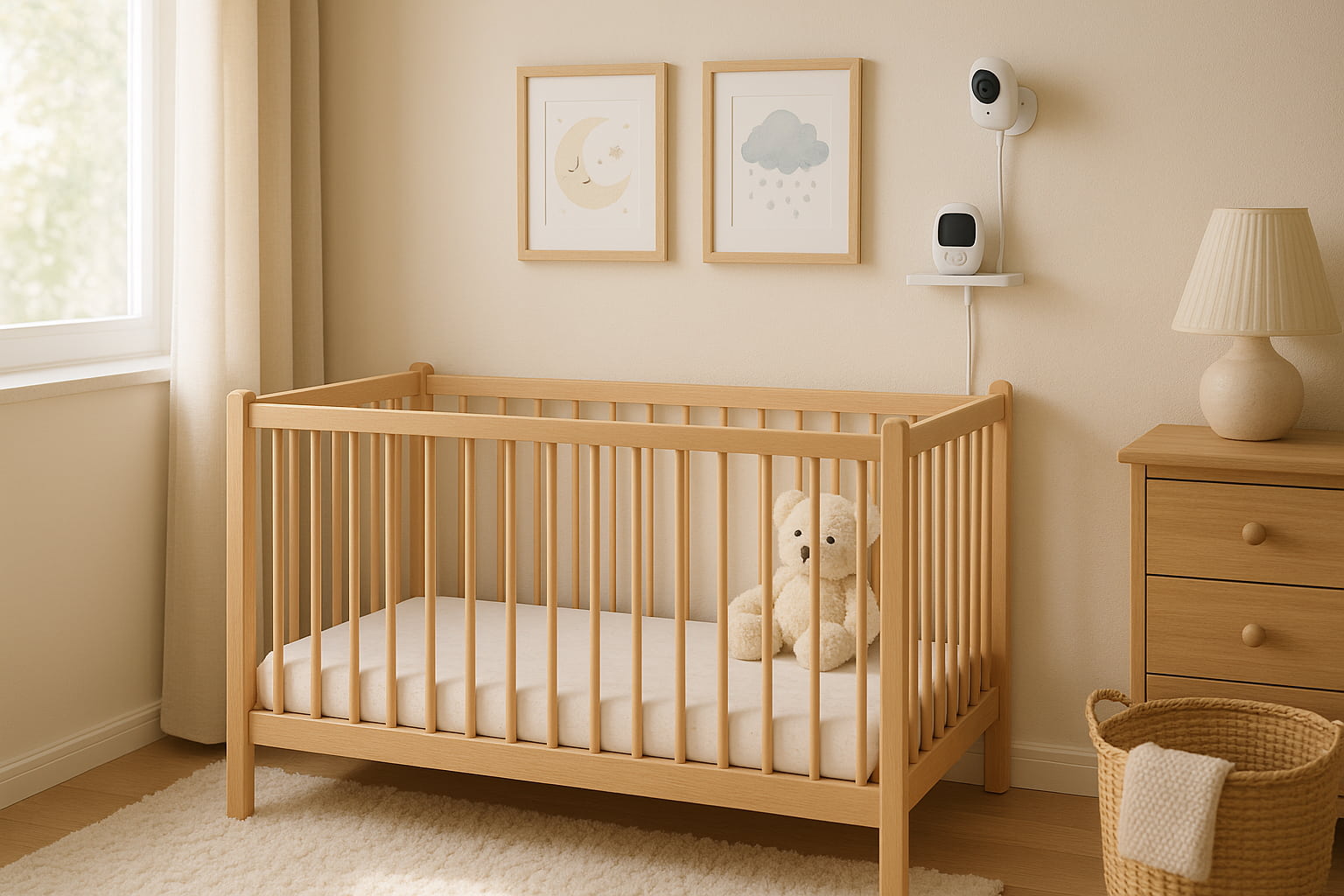
Many parents wonder when they should begin using a monitor. Some start right away after bringing the baby home. Others wait a bit longer.
Pediatricians say it depends on your baby’s needs and your comfort level.
👉 If your baby was born early or has health issues, a monitor can be helpful from day one.
👉 For healthy babies, many doctors say to use it mainly during naps or overnight sleep.
What matters most is creating a safe sleep setup firm mattress, no toys or pillows, and baby on their back.
A baby monitor adds extra peace of mind, but it’s not a must-have from day one for every family.
The key is to use it as a tool, not as a replacement for safe sleep habits.
🛏️ Pediatrician Advice on Where to Place a Baby Monitor
Pediatricians don’t just talk about whether to use a monitor. They care how you use it too.
One common tip: where you place the monitor matters a lot.
Here’s what most doctors recommend:
✔️ Keep the monitor 3-6 feet away from your baby
✔️ Never place cords near the crib
✔️ Mount cameras high up for a full view of the room
Avoid putting monitors too close to your baby’s head or body. Even low-EMF devices can be kept at a safer distance.
Remember, a clear view is important, but so is safety.
Pediatricians agree: a well-placed monitor helps parents without adding risk.
🧼 Pediatric Tips for Safe and Effective Monitor Use
When using any monitor, pediatricians offer some simple safety tips:
✅ Keep cords away from cribs or play areas
✅ Mount cameras 3+ feet away from baby
✅ Use monitors as support, not supervision
✅ Don’t skip pediatric appointments due to “good monitor data”
They also suggest turning off breathing alerts during the day to avoid alert fatigue.
🧠 Fact Box
According to the American Academy of Pediatrics, home cardiorespiratory monitors should not be used as a strategy to reduce the risk of SIDS. They may, however, be recommended for some infants with specific medical histories (for example, prior ALTE/BRUE), and can reduce parental anxiety in select high-risk cases.
📵 Do Pediatricians Recommend Taking Breaks from Monitors?
Yes, especially as your baby gets older.
Here’s why:
✔ Older babies sleep longer and deeper
✔ Too much data can increase parental anxiety
✔ Breaks help build natural confidence and trust
By 6–12 months, many pediatricians suggest gradually moving away from heavy monitor use, especially with wearables.
Let your instincts guide you as much as the screen does.
👉 Struggling with monitor choices? Our guide on 7 Honest Differences Between Movement vs Breathing Baby Monitors might help.
📈 Common Myths Pediatricians Want Parents to Stop Believing
Let’s bust a few myths together:
❌ “If it’s expensive, it must be safer.”
❌ “All monitors track breathing equally.”
❌ “If I have a monitor, I don’t need to check the baby myself.”
Pediatricians emphasize that safety comes from habits, not hardware. Technology supports your parenting it doesn’t replace it.
🏁 Final Verdict: What Pediatricians Really Say About Baby Monitors
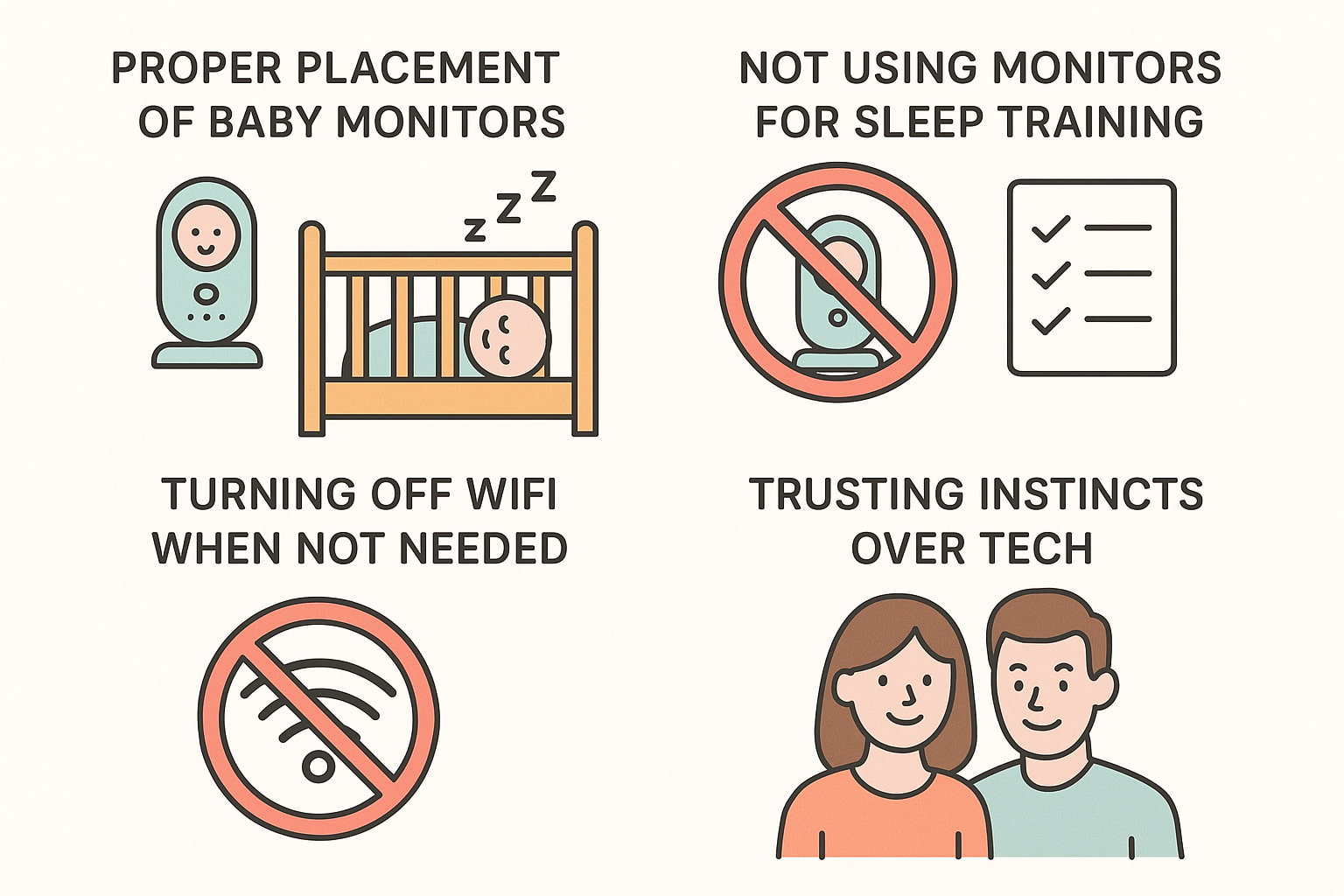
When it comes to baby monitors, pediatricians offer a simple message: use them wisely, not constantly.
These devices can give peace of mind, especially for new parents or babies with health concerns. But monitors are not magic tools. They don’t prevent SIDS. They don’t replace safe sleep habits.
Pediatricians say:
✅ Use them if they help reduce your stress
✅ Don’t rely on them alone; check your baby often
✅ Keep your baby’s sleep space safe and clear
Every family is different. What works for one parent may not work for another. That’s okay.
Your instincts, love, and daily care matter far more than any screen or app.
So if a monitor helps you feel calm and confident, great, if not, skip it. Trust your gut, it’s usually right.
❓ FAQ: Pediatrician Advice on Baby Monitor Use
Q1: Do pediatricians recommend smart baby monitors?
A: Only in specific cases, like preemies or babies with breathing risks.
Q2: Can a baby monitor prevent SIDS?
A: No. Pediatricians say monitors don’t prevent SIDS; safe sleep practices do.
Q3: Are wearable monitors better than video ones?
A: It depends. Wearables track data, while video monitors offer visual checks.
Q4: When should I stop using a baby monitor?
A: Many pediatricians suggest reducing use after 6-12 months, depending on your needs.
Disclaimer
This article provides general parenting information and pediatric insights. It does not replace personalized medical advice. Always consult your pediatrician for guidance.
Written by Find For Baby
Helping you make informed, confident decisions about your baby’s health and safety.
